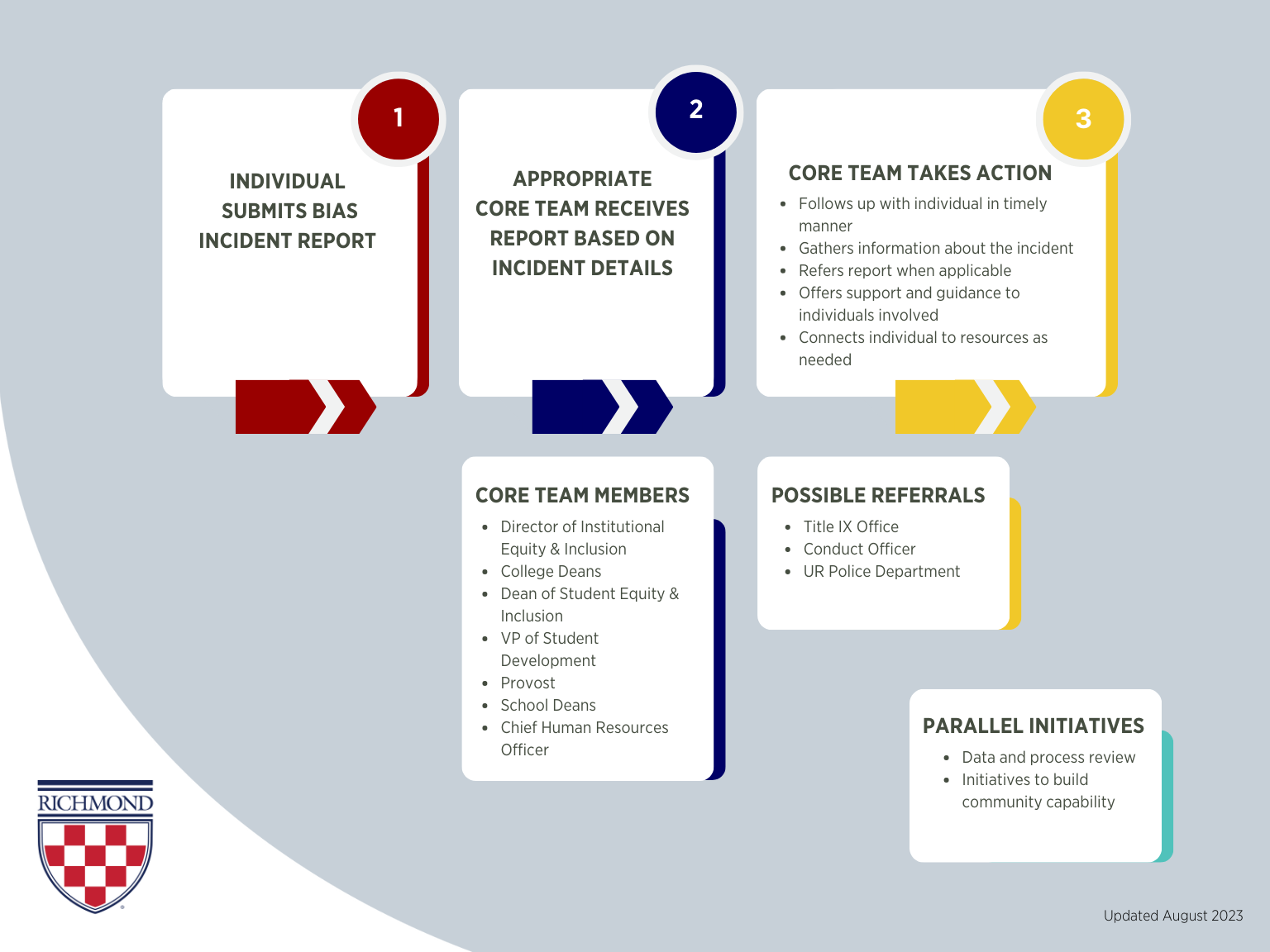Bias incidents are acts that do not constitute a crime or discrimination or harassment, as defined by University policies, but which may intimidate, mock, degrade, or threaten individuals or groups and which one could reasonably conclude targets a member or group within the University community because of that individual or group’s actual or perceived age, ancestry or ethnicity, color, creed, disability, gender, gender identity or expression, immigration or citizenship status, marital status, national origin, race, religion, religious practice, or sexual orientation.
Discrimination is inequitable treatment by the University or its Affiliates based on an individual’s Protected Status that adversely affects a term or condition of an individual’s employment or limits or denies an individual’s opportunity to participate in or benefit from a University program or activity.
Harassment is unwelcome conduct directed against an individual based on that individual’s Protected Status that is sufficiently severe or pervasive such that it limits or denies an individual’s employment, academic performance, or ability to participate in or benefit from University programs or activities.
Hate crimes are defined as any criminal offense or attempted criminal offense that one could reasonably conclude is motivated, in whole or in part, by the alleged offender’s bias against an individual’s actual or perceived age, ancestry or ethnicity, color, creed, disability, gender, immigration or citizenship status, marital status, national origin, race, religion, religious practice, or sexual orientation.
Protected Status means an individual’s race, color, religion, national or ethnic origin, ethnicity, age, sex, gender, sexual orientation, gender identity, gender expression, disability, military or veteran status, or any classification protected by local, state or federal law.
For more details, please see the following:
